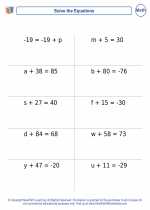Distributive Property
The distributive property is a fundamental property of algebra that allows us to simplify expressions and solve equations. It states that for any real numbers a, b, and c:
a * (b + c) = a * b + a * c
In other words, when we distribute a number or variable outside a set of parentheses to each term inside the parentheses, we multiply the outside factor by each term inside.
Examples:
Example 1: 3 * (2 + 4) = 3 * 2 + 3 * 4 = 6 + 12 = 18
Example 2: 5 * (x + 2) = 5 * x + 5 * 2 = 5x + 10
Study Guide:
To understand and apply the distributive property, follow these steps:
- Identify the term outside the parentheses (the factor).
- Distribute the factor to each term inside the parentheses by multiplying.
- Add or subtract the products to simplify the expression.
Practice applying the distributive property with various examples to become comfortable with the concept. This property is essential in simplifying expressions, solving equations, and factoring algebraic expressions.
Remember that the distributive property is a powerful tool in algebra, and mastering it will make solving equations and simplifying expressions much easier!
[Distributive Property] Related Worksheets and Study Guides:
.◂Math Worksheets and Study Guides Seventh Grade. Algebraic Equations
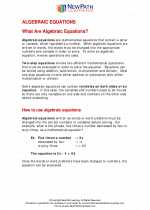
 Activity Lesson
Activity Lesson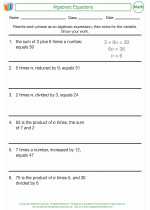
 Worksheet/Answer key
Worksheet/Answer key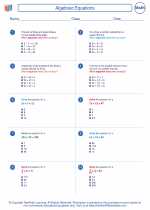
 Worksheet/Answer key
Worksheet/Answer key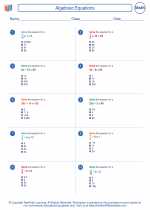
 Worksheet/Answer key
Worksheet/Answer key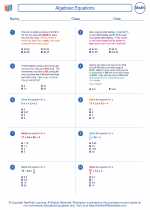
 Worksheet/Answer key
Worksheet/Answer key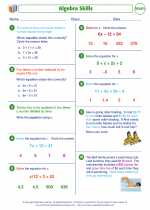
 Worksheet/Answer key
Worksheet/Answer key